The Atlanta History Center has a poignant exhibit called Turning Point: The American Civil War that shows the war from a Southern point of view. Below are some of the voices/words from this exhibit.
Volunteers believed the honour of their homes and families was at stake.
Many people felt they would disgrace their families if they did not volunteer. Men from the same town or county usually volunteered together as a group. Many were related to each other or had grown up together.
Most volunteers left home better prepared for a holiday than for war. Cheering townsfolk weighed them down with cookies, cakes, farewell mementos, and comforts of home.
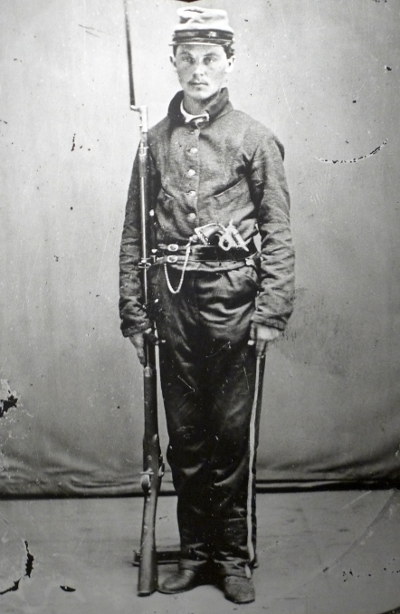
In 1861, the volunteers who marched off to war joined lest they are disgraced or outcast from their communities. They expected to be comfortable and packed as though they were going for a family camping trip and expected the war to be over quickly.
“[I] felt that I should be disgraced if I remained at home while other boys no older than myself were out fighting.” — Capt. James Cooper, C.S.A. Tennessee.
“My dear old mother… would rather hear of my death on the field of battle, although it would nearly break her heart than to hear of my being branded as a deserter.” — Pvt. John Casler, C.S.A. Virginia.
A year after the war started, reality sank in. During the first eighteen months, 220,000 soldiers died. No longer were governments looking for volunteers, both sides initiated a mandatory draft.
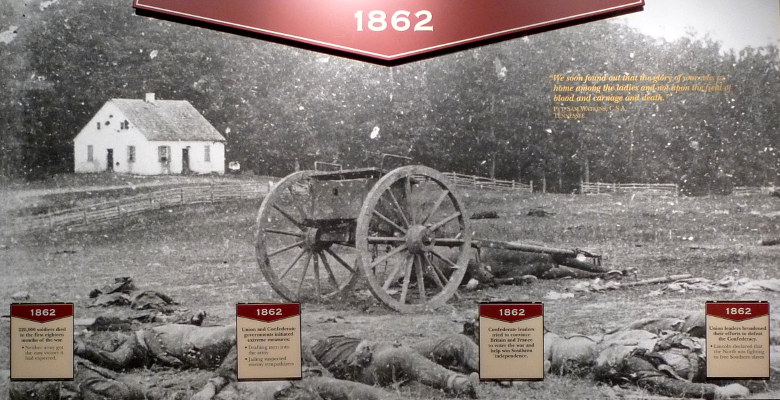
“We soon found out that the glory of war was at home among the ladies and not upon the field of blood and carnage and death.” — Pvt. Sam Watkins, C.S.A. Tennessee
Death, however, was not always due to fighting. Two-thirds of soldiers died in the army camps, from disease or injuries.
“Early in the war, measles, mumps, and smallpox spread rapidly among men from rural areas who lacked immunities that men from towns and cities had developed in childhood. Unaware of sanitation practices, soldiers often dug latrines too close to their camps, contaminating water supplies. Resulting waves of dysentery and typhoid killed more men than any other cause.”
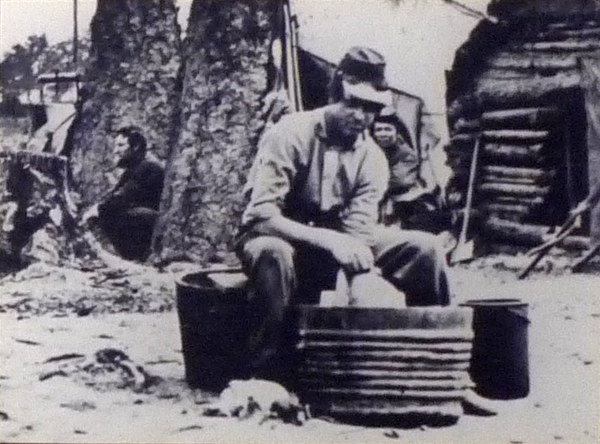
“Soldiers on the march often had to go for weeks without bathing. Most men became infested with lice. In camp, soldiers washed their cloths with boiling water to kill the lice.”
The Minié ball was the bullet of choice for the American Civil War… to the detriment of the wounded. Wounds made by the minié ball produced terrible bone shattering wounds that often lead to amputation. Because of the increased accuracy of Minie enabled weapons and the rapidity in which they could be reloaded, the American Civil War resulted in more casualties than seen in any other previous conflict.
“In battle, two or three men were wounded for every man killed. The condition of those left alive was horrifying. Minié balls opened large, gaping wounds; shattered bones, and often remained in the body.
Experienced field surgeons knew that stomach or head wounds were usually fatal, but that amputation could save a man shot in the arm or leg. The procedure for cutting off a limb usually took less than 15 minutes. Unaware that germs caused infections, surgeons operated repeatedly with the same unsterilised knives and saws.”
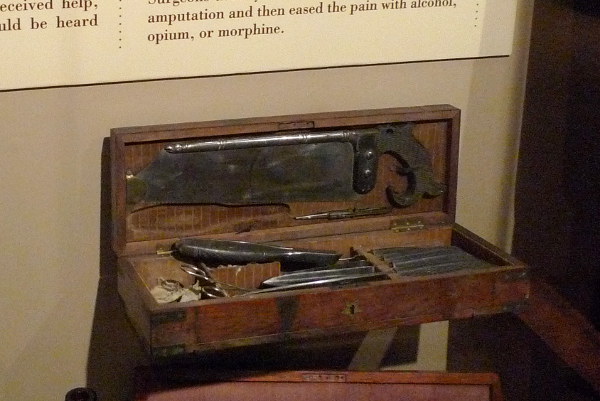
Aftermath of the War
“By the end of the war, 620,000 Union and Confederate soldiers and an estimated 50,000 Southern civilians had died from combat, disease, or starvation. Another 500,000 soldiers were wounded, many of them maimed for life. What had this terrible sacrifice gained?”
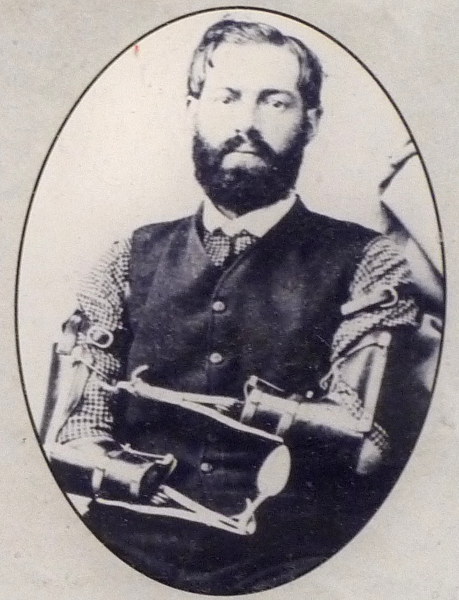
Soldiers weren’t the only ones to suffer.
“During the war, 250,000 soldiers’ wives became widows/ In the midst of their grief, widows were often left without any means of financial support. Some had to depend on friends, family, or charity. Others had to go to work or take in boarders in order to stay in their homes ad raise their children. In 1862, the U.S. Government began granting small pensions to Union soldiers; widows; Southern women had no such support.”
A second display at the Atlanta History Center, War in Our Backyards: Discovering Atlanta, compliments the above exhibit.
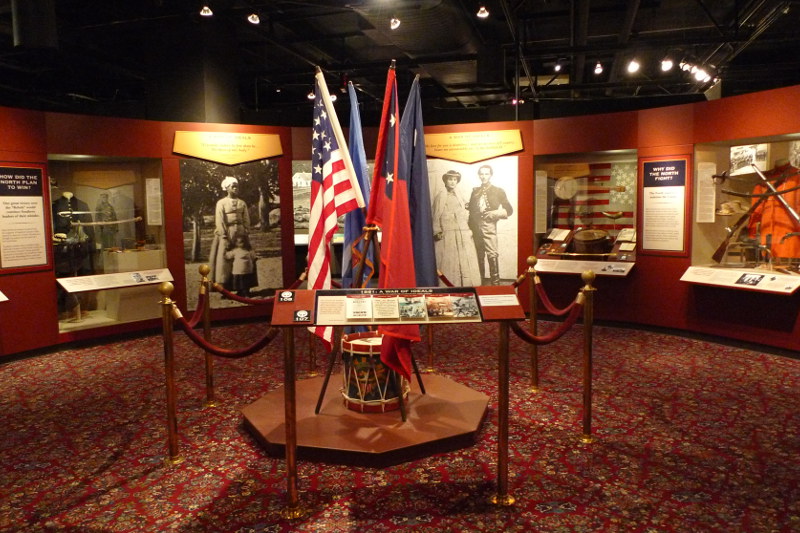
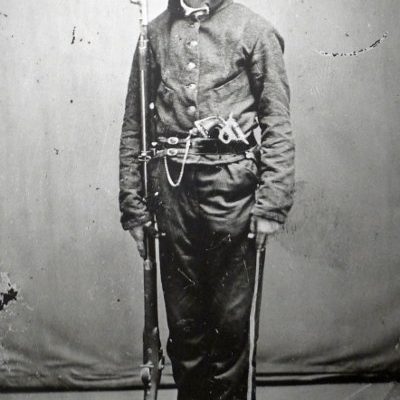
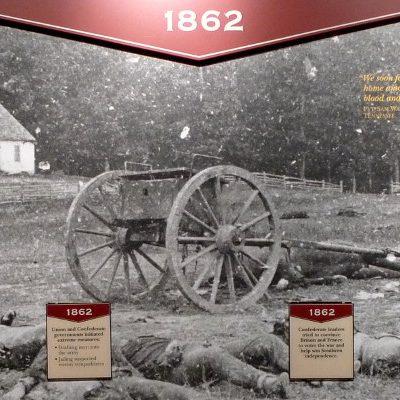
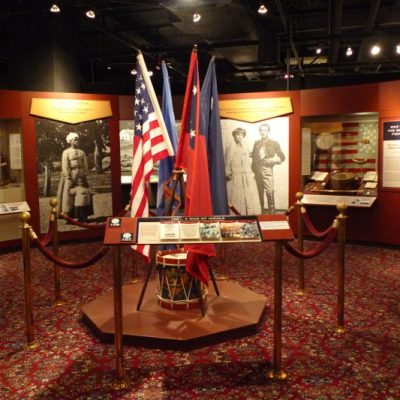
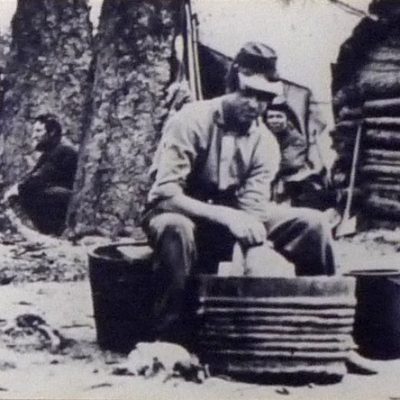
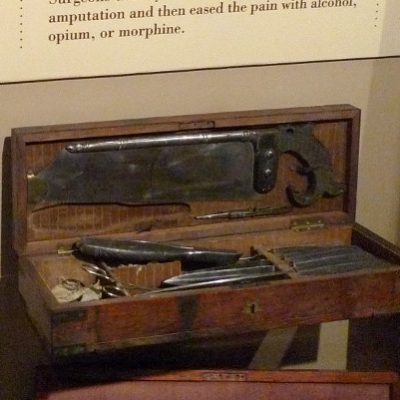
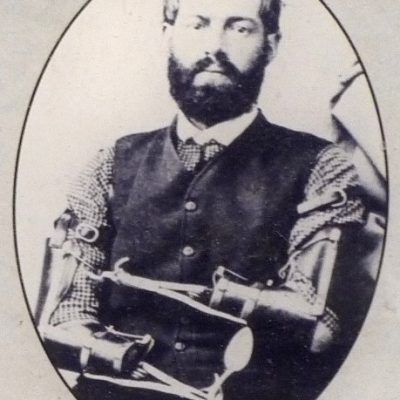
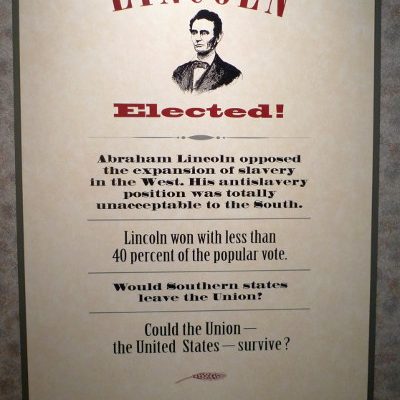
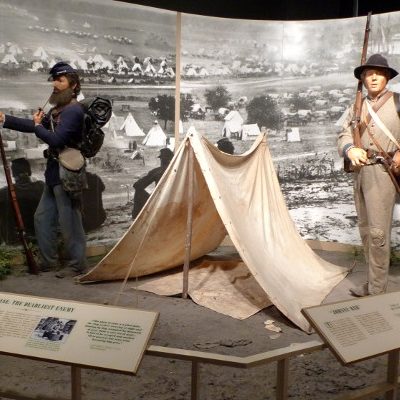
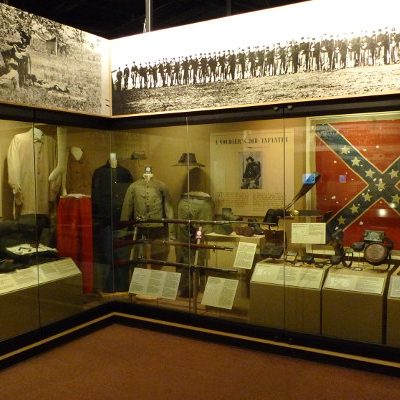
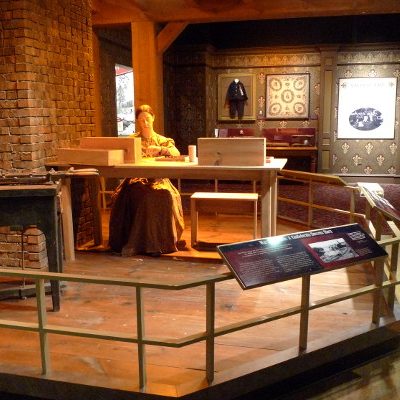
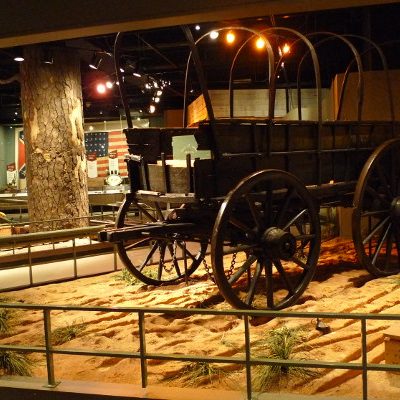
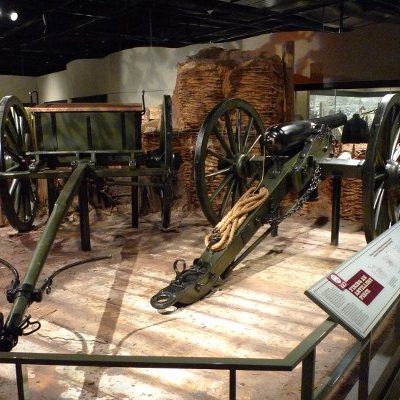
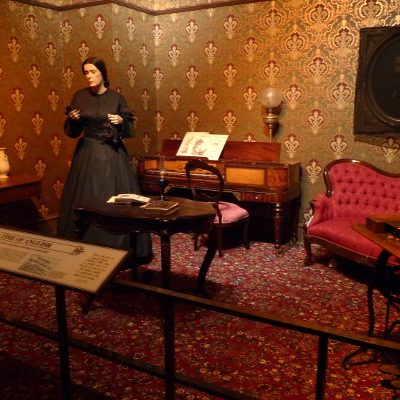
I was sure this had to be an older post as the current overseer of the museum is a scalawag!